Dan Drezner is bearish on the prospects of negotiations with Iran yielding any major concessions on its nuclear program: Pragmatically, I seriously doubt that the United States can offeranything to get Tehran to halt its nuclear program. This leads to oneof two possible decisions: pre-emptive action to delay the program, oraccepting the inevitable. Contra Cohen, the most pragmatic thing for the United Statesto do is to expect nothing fruitful to come from negotiations with Iran– and to (nonviolently) prepare for the contingency of a nuclear Iran. A question to myrealist colleagues here at FP — why on God’s green earth […]
Middle East & North Africa Archive
Free Newsletter
This is just a re-occuring, random thought that’s been bouncing around in my head for the past few weeks, but I thought I’d air it out: Is there something peculiar to the Iraq and Afghanistan Wars that explains why the literature to emerge from them is almost exclusively non-fiction, whether war memoirs or war reporting? Or does that just reflect on the current state of the publishing industry? My hunch is that it’s both. Or to be more specific, it’s a reflection of the professionalization of the military. To be sure, there were plenty of war memoirs to come out […]
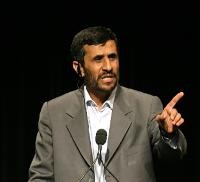
This essay was originally published as part of the Middle East Institute‘s Viewpoints Special Edition: “The Iranian Revolution at 30,” part of asix-part series focusing on the turning-point events of 1979 in theMiddle East. “The Iranian Revolution at 30” can be read in full here.Understanding Iran’s foreign policy is the key to crafting sensible and effective policies toward Iran and requires, above all, a close analysis of the profound cultural and psychological contexts of Iranian foreign policy behavior. For Iran, the past is always present. A paradoxical combination of pride in Iranian culture and a sense of victimization have created […]
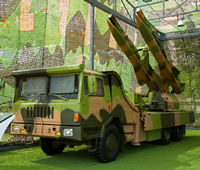
Will the worldwide recession actually benefit Chinese arms exports? That’s what WPR managing editor Judah Grunstein speculated last week, citing Chinese defense companies’ ability to reproduce foreign weapons systems and then sell them on third-party markets at lower prices than the original. It is too early to identify a clear trend, but not premature to consider potential unwelcome scenarios. The tremendous diplomatic exertions that the United States and Israel are making to keep Russia from selling its S-300 air defense missile systems to Iran or Syria, for instance, will matter little if China chooses to sell them its HQ-9 surface-to-air […]

When Barack Obama became the new U.S. president, one of the primary concerns for many observers was restoring America’s image in the eyes of the world. During the eight years of the Bush administration, the favorability ratings of the United States had declined dramatically. Nowhere was the U.S. image more negatively viewed than among publics in Muslim-majority countries. Anti-Americanism had intensified in the Arab world, and spread from Nigeria in West Africa to Indonesia in the Far East. Despite the administration’s vigorous efforts to win Muslim hearts and minds through innovative public diplomacy, when former president Bush left office, U.S. […]
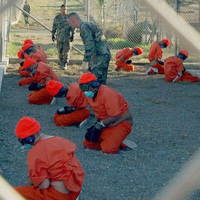
Many of America’s actions in its post-9/11 campaign against al-Qaida have served to increase Muslim and Arab radicalism, rather than to dampen it as intended. The invasion and subsequent occupation of Iraq, the detainment of captured terrorists at Gitmo and subsequent revelations regarding the use of water boarding and other torture techniques all served to amplify negative perceptions of the United States in the Islamic world and facilitate the radicalization of potential recruits for the terrorists’ cause. But two recent developments have led many Americans to believe that al-Qaida and the threat it posed might be on the verge of […]
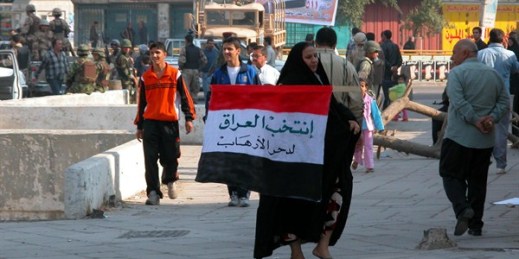
The Iraq War will surely stand as the greatest of foreign policy mistakes — a failure, and a tragic one, as no shortage of commentators have called it. What makes it more tragic is that it needn’t have been so. Whether or not one was firmly against the war from the start, the verdict on Iraq will ultimately be characterized by an unusual mix of anger, ambivalence, and, perhaps most of all, confusion. From the beginning, Iraq wasn’t just about a war. It raised a series of questions that many of us still have trouble answering. If the war was […]
I mentioned the other day how Turkey might come out on the losing end of the Obama administration’s willingness to engage Syria and Iran. I also mentioned that France fit into the category of Middle Powers that had benefited from the late-Bush 43 period. France is a bit more complicated, because it filled not only the communication vacuum created by the Bush administration’s isolation policies, but also the more generalized leadership vacuum created by the extended lame duck period. One area where the two vacuums overlapped, though, was with regards to Iran’s nuclear program. To begin with, France as part […]
As a lapsed and somewhat jaded idealist, I tend to analyze international relations independently of the moral categories that I apply to individuals. Certain regimes are just so beyond the pale that I simply avoid devoting much mental energy to them; North Korea and Burma, you’ll notice, rarely make appearances on the blog. But beyond a visceral repulsion to the extreme offenders, I usually find myself unmoved by whether a particular country deserves a certain outcome or not, and am instead drawn to figuring out what combined to make that outcome happen, what might have been done differently to achieve […]
One of the things that will be interesting to watch as the Obama administration pursues its unwinding of Bush-era isolation policies is the degree to which it either supports or devalues the “influence inflation” the Bush policies allowed various middle powers to enjoy. I’m thinking in particular about Turkey, but I’d say France fits into this category as well. The idea being that a policy of isolating countries and subnational actors that are inescapable interlocuters puts a premium on the ability of third-party countries to bridge the communication divide. What made Turkey such a valuable mediator between Israel and Syria […]
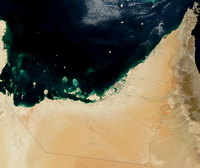
As one of her final acts as U.S. secretary of state, Condoleeza Rice signed a nuclear cooperation agreement with the United Arab Emirates (U.A.E.) on Jan. 15, a deal touted by the Bush administration as a model for promoting peaceful nuclear energy while at the same time guarding against weapons proliferation. The Obama administration is still studying the accord before deciding whether to forward it to Congress for ratification into law. But the deal has won an unusual combination of support from both representatives of the U.S. nuclear power industry and select nonproliferation experts. Congressional reservations, however, remain. Persistent and […]
Last week I mentioned that COIN offers a vision of war that is more intellectually satisfying and morally palatable. Today over at Small Wars Journal (.pdf), Jason Fritz takes that a step further and calls it more aethsetically pleasing — to its proponents. It’s an interesting framing of the COIN vs. Conventional debate, where the zealots on either extreme of the spectrum are actually blinded by the beauty of their ideal method of warfare. Here’s Fritz: . . . Multi-agency counterinsurgency doctrine provides a holistic governmentsolution for socio-political-economic problems. It is government at itsbest — various agencies working together to […]
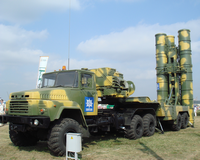
Will Russia supply Iran with the advanced S-300 surface-to-air missile system? That is the most important — and persistent — question regarding Russia’s ongoing arms sales to Iran. The repeated rumors and confusion regarding a possible sale indicate that Russian policymakers are divided over the issue. It also illustrates the degree of mistrust between the Russian and Iranian national security communities over the subject of bilateral arms transfers in general, and disagreement over the extent to which Moscow should support Iranian defense aspirations over American and Israeli objections in particular. The “S-300” family encompasses a range of specific models that […]
In a recent WPR Briefing on the Iranian nuclear program, the Arms Control Association’s Peter Crail explained why the most credible risk of Iranian weaponization came from the areas of “Known Unknowns” that lie outside of IAEA inspection oversight. Today at Arms Control Wonk, Andreas Persbo fills in the outlines with a detailed description of the most worrying suspects in the “Known Unknowns” lineup: Iran’s domestic uranium mining sector, and as Crail discussed, an alternate, clandestine conversion and enrichment facility. The former is for now entirely outside the IAEA’s oversight activities and, in combination with the latter, could feed raw […]
A few interesting Turkey headlines are floating around the news today. First, there’s Secretary of State Hillary Clinton’s visit and accompanying announcement that President Barack Obama will make a stopover in Ankara in April. Both stories play to the “Turkey as essential mediator” meme that I’ve done my part in amplifying. Interestingly enough, the Obama visit will bookend his European tour, and the White House has taken pains to distinguish it from his “search for a Muslim capital” schtick. That should provoke some tea-leaf reading about whether the visit is meant to signal American support for Turkey’s E.U. candidacy, since […]
If you’ve been following the “COIN will breed COIN” debate, check out these posts by Andrew Exum, Matthew Yglesias and Spencer Ackerman. If you haven’t, check them out anyway. It’s an interesting discussion of whether in makingCOIN a doctrinal focus of operations, the U.S. military will be tempted to intervene in counterinsurgencies of choice. It’s a subject I’ve written about often over the past 18 months. If anything has reassured me that my worries weren’t warranted, it’s been Secretary of Defense Bob Gates’ emphasis on “strategic balance.” Exum’s insistence that COIN practitioners are not necessarily COIN enthusiasts rings true, too. […]
